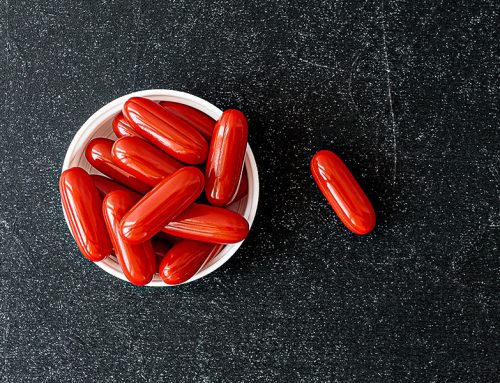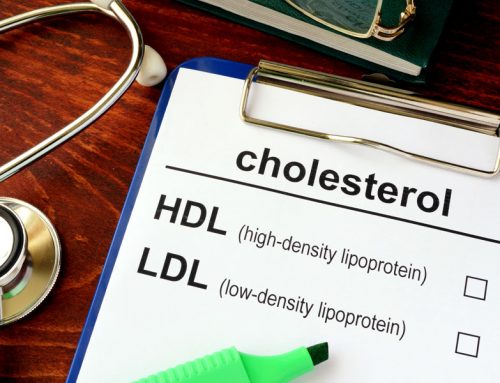In the KiSel-10 project, our research group has reported that daily supplementation of elderly community living Swedish citizens with a combination of 200 micrograms of organic selenium and 200 milligrams of Coenzyme Q10 for four years is associated with the following statistically significant heart health outcomes [Alehagen 2013: Johansson 2015]:
- reduced risk of death from heart disease
- reduced blood levels of a protein bio-marker for heart failure
- improved heart function shown on echocardiograms
- improved health-related quality of life

Low intakes of selenium are associated with the increased risk of death from heart disease. Supplementation with selenium and Coenzyme Q10 reduce the risk by reducing oxidative stress, systemic inflammation, fibrosis, and endothelial dysfunction [Alehagen 2018].
Possible Mechanisms for the Positive Clinical Outcomes
Thus far, our research group has published sub-analyses from the KiSel-10 Study that illuminate possible mechanisms to explain the positive clinical effects of the combined supplementation:
- reduced plasma levels of two bio-markers for oxidative damage [Alehagen 2015]
- reduced plasma levels of six bio-markers for systemic inflammation [Alehagen 2015; Alehagen 2019]
- reduced serum levels of eight bio-markers for fibrosis [Alehagen 2018]
- reduced plasma levels of the von Willebrand factor and the plasminogen activator inhibitor-1, both bio-markers for endothelial dysfunction [Alehagen 2020]
- increased plasma levels of insulin-like growth factor-1, attenuating an age-related decline in IGF-1 concentrations [Alehagen 2017]
Indicators of Endothelial Dysfunction
Elevated von Willebrand factor concentrations are associated with inflammation and with vascular damage; accordingly, von Willebrand factor can be regarded as a marker for endothelial dysfunction.
Note: Endothelial dysfunction is the medical term for the impaired functioning of the endothelium, the thin surface lining of cells on the inside of blood vessels. Endothelial dysfunction is characterized by 1) impaired dilation of blood vessels, 2) sub-optimal levels of nitric oxide, and 3) inflammation and blood clotting. As such, endothelial dysfunction sets the stage for the development of atherosclerosis. Fortunately, it is a reversible disorder, and selenium and Coenzyme Q10 appear to improve endothelial function.
Plasminogen activator inhibitor-1 levels are also associated with endothelial dysfunction, including in ischemic heart disease and in heart attack.
The finding that the combined selenium and Coenzyme Q10 treatment reduced the blood concentrations of von Willebrand factor and plasminogen activator inhibitor-1 made us look at blood levels of D-dimer as an additional bio-marker for endothelial dysfunction.
D-dimer as a Bio-marker for Endothelial Dysfunction
In our most recent study of the data from the KiSel-10 project, we investigated the levels of D-dimer in plasma in blood samples taken from study participants in the combined selenium and Coenzyme Q10 treatment group and in the placebo group.
- D-dimer is the term for small protein fragments in the plasma that are produced by the fibrinolytic process that the body uses to control the size of blood clots. (Fibrinolysis means the dissolving of fibrin and the breakdown of blood clots.)
- The presence of D-dimer is biomarker of thrombo-embolism (a blood clot blocking blood flow in a blood vessel), increased inflammation, and endothelial dysfunction. As such, elevated D-dimer levels are associated with the risk of ischemic heart disease.
- We measured D-dimer in the plasma of 213 study participants at the start of the KiSel-10 Study and again after 48 months.
- At the end of the 4.9-year follow-up period, we found significantly lower D-dimer concentrations in the active treatment group compared with the placebo group.
- When we controlled for a possible confounding effect of bio-markers for inflammation, we found an independent effect of the selenium and Coenzyme Q10 treatment on D-dimer.
- In a sub-group analysis of KiSel-10 Study participants with hypertension or ischemic heart disease, we found that the combined supplementation resulted in a significantly lower concentration of D-dimer as compared to placebo.
- We concluded that daily selenium and Coenzyme Q10 supplementation of elderly citizens with low selenium status prevented an increase in D-dimer and reduced the risk of cardiovascular mortality in comparison with the placebo group.
Take-home Message
- The level of D-dimer in the placebo group increased during the study period; it remained unchanged or was slightly reduced in the active treatment group.
- After 48 months, D-dimer levels were significantly lower in the active treatment group in comparison with the placebo group.
- Our group observed a significantly reduced heart disease mortality in the study participants with a high D-dimer level when they were given selenium and Coenzyme Q10 supplements, compared to study participants given placebos.
- A sub-analysis of study participants with hypertension or ischemic heart disease also demonstrated that a significantly lower concentration of D-dimer was associated with the combined supplementation.
- High D-dimer levels in the elderly populations may reflect age-related inflammatory activity and endothelial dysfunction.
- Elevated D-dimer level independently predicts increased risk of death from heart disease in patients with heart failure symptoms [Alehagen 2004].
D-Dimer and Covid-19 – A final word:
A September 2020 meta-analysis of the data from six studies enrolling 1355 patients hospitalized with moderate to critical COVID-19 has shown that D-dimer levels are significantly associated with the risk of mortality in COVID-19 patients [Sakka 2020].
A meta-analysis published in November/September 2020 analyzed data from 18 studies with a total of 3682 Covid-19 patients. The aggregated data showed significantly elevated D-dimer levels in patients who died versus those who survived. The risk of death was four times higher in patients with elevated D-dimer versus low D-dimer, and the risk of developing severe disease was twice as high in patients with elevated D-dimer levels versus low D-dimer. In Covid-19 patients with elevated D-dimer levels, there was a significantly increased risk of severe disease and mortality [Shah 2020].
Read our key article about CoQ10 and cardiovascular health in elderly people
Sources
Alehagen U, Aaseth J, Lindahl TL, Larsson A, Alexander J. Dietary supplementation with selenium and Coenzyme Q10 prevents increase in plasma d-dimer while lowering cardiovascular mortality in an elderly Swedish population. Nutrients. 2021:13:1344.
Alehagen U, Alexander J, Aaseth J, Larsson A, Lindahl TL. Significant decrease of von Willebrand factor and plasminogen activator inhibitor-1 by providing supplementation with selenium and coenzyme Q10 to an elderly population with a low selenium status. Eur J Nutr. 2020;59(8):3581-3590.
Alehagen U, Alexander J, Aaseth J, Larsson A. Decrease in inflammatory biomarker concentration by intervention with selenium and coenzyme Q10: a sub-analysis of osteopontin, osteoprotergerin, TNFr1, TNFr2 and TWEAK. J Inflamm (Lond). 2019 Mar 18;16:5.
Alehagen U, Aaseth J, Alexander J, Johansson P. Still reduced cardiovascular mortality 12 years after supplementation with selenium and coenzyme Q10 for four years: A validation of previous 10-year follow-up results of a prospective randomized double-blind placebo-controlled trial in elderly. PLoS One. 2018 Apr 11;13(4):e0193120.
Alehagen U, Aaseth J, Alexander J, Svensson E, Johansson P, Larsson A. Less fibrosis in elderly subjects supplemented with selenium and coenzyme Q10-A mechanism behind reduced cardiovascular mortality? Biofactors. 2018 Mar;44(2):137-147.
Alehagen U, Johansson P, Aaseth J, Alexander J, Brismar K. Increase in insulin-like growth factor 1 (IGF-1) and insulin-like growth factor binding protein 1 after supplementation with selenium and coenzyme Q10. A prospective randomized double-blind placebo-controlled trial among elderly Swedish citizens. PLoS One. 2017 Jun 13;12(6):e0178614.
Alehagen U, Alexander J, Aaseth J. Supplementation with selenium and Coenzyme Q10 reduces cardiovascular mortality in elderly with low selenium status. a secondary analysis of a randomised clinical trial. PLoS One. 2016 Jul 1;11(7):e0157541.
Alehagen U, Lindahl TL, Aaseth J, Svensson E, Johansson P. Levels of sP-selectin and hs-CRP Decrease with Dietary Intervention with Selenium and Coenzyme Q10 Combined: A Secondary Analysis of a Randomized Clinical Trial. PLoS One. 2015 Sep 16;10(9):e0137680.
Alehagen U, Aaseth J, Johansson P. Less increase of copeptin and MR-proADM due to intervention with selenium and coenzyme Q10 combined: Results from a 4-year prospective randomized double-blind placebo-controlled trial among elderly Swedish citizens. Biofactors. 2015 Nov-Dec;41(6):443-52.
Alehagen U, Johansson P, Björnstedt M, Rosén A, Dahlström U. Cardiovascular mortality and N-terminal-proBNP reduced after combined selenium and coenzyme Q10 supplementation: a 5-year prospective randomized double-blind placebo-controlled trial among elderly Swedish citizens. Int J Cardiol. 2013 Sep 1;167(5):1860-6.
Alehagen U, Dahlström U, Lindahl TL. Elevated D-dimer level is an independent risk factor for cardiovascular death in out-patients with symptoms compatible with heart failure. Thromb Haemost. 2004 Dec;92(6):1250-8.
Johansson P, Dahlström Ö, Dahlström U, Alehagen U. Improved health-related quality of life, and more days out of hospital with supplementation with selenium and Coenzyme q10 combined. results from a double blind, placebo-controlled prospective study. J Nutr Health Aging. 2015 Nov;19(9):870-7.
Sakka M, Connors JM, Hékimian G, Martin-Toutain I, Crichi B , Colmegna I, Bonnefont-Rousselot D, Farge D, Frere C. Association between D-Dimer levels and mortality in patients with coronavirus disease 2019 (COVID-19): a systematic review and pooled analysis. JMV-Journal de Médecine Vasculaire. 2020;45(5):268-274.
Shah S, Shah K, Patel SB, Patel FS, Osman M, Velagapudi P, Turagam MK, Lakkireddy D, Garg J. Elevated D-Dimer Levels Are Associated with Increased Risk of Mortality in Coronavirus Disease 2019: A Systematic Review and Meta-Analysis. Cardiol Rev. 2020 Nov/Dec;28(6):295-302.
30 April 2021









Leave A Comment